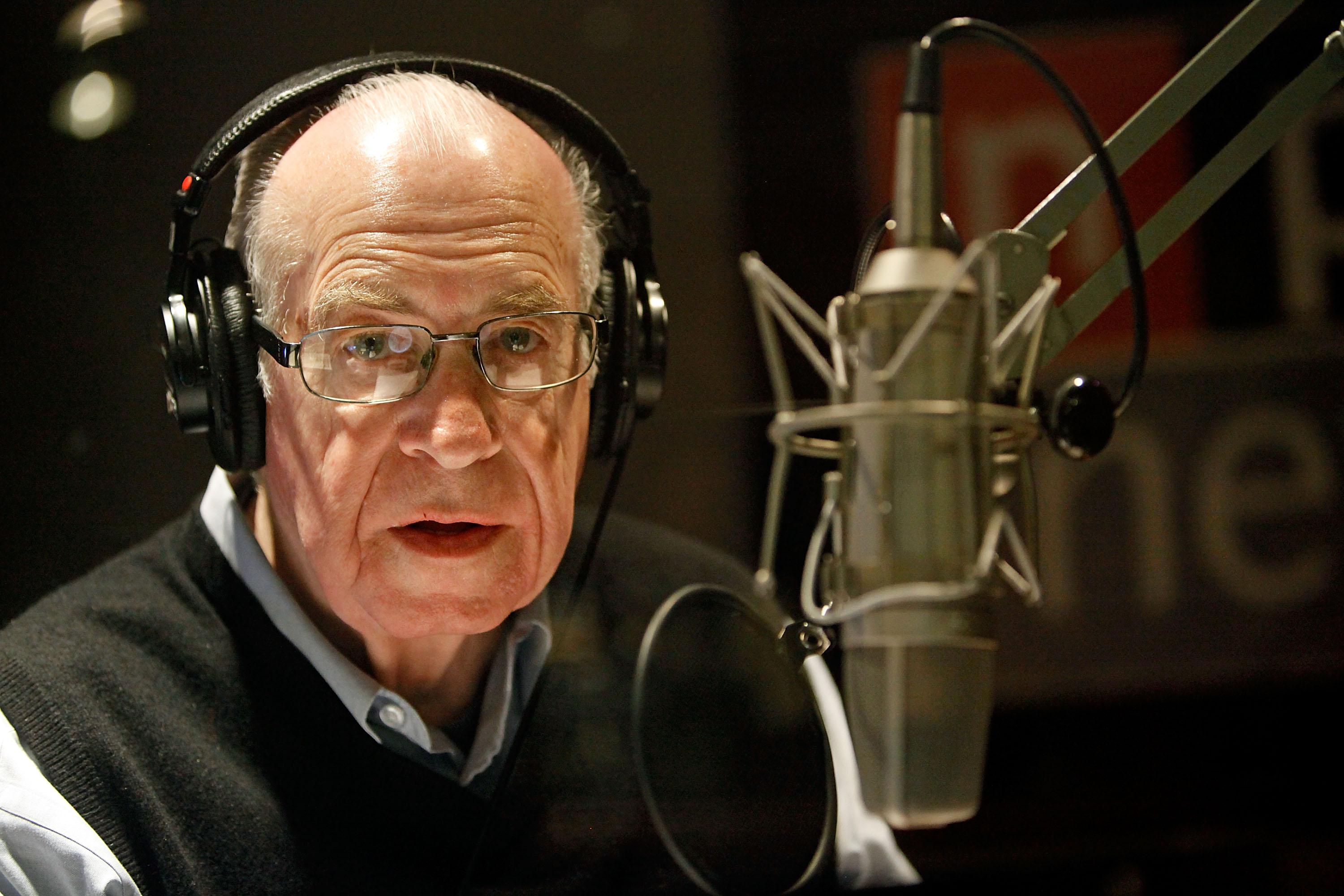According to the The Buggles, video killed the radio star. The TV version of the long-running NPR news quiz Wait Wait … Don’t Tell Me!, which airs on BBC America at 8 p.m. Friday night, suggests that both formats can survive. But as we’ve seen on mashup-obsessed Glee, combining two things sometimes makes both seem weak.
Wait Wait Don’t Tell Me!: A Royal Pain in the News—a name, by the way, that sounds bad whether the accent is British or American—is intended as a “transatlantic year-in-review quiz.” Consequently, the panelists include two Americans, Wait Wait veterans Paula Poundstone and Alonzo Bodden, and one Brit, Nick Hancock, who spends most of his time back home MCing TV quiz shows. When Congress is out of session, C-SPAN sometimes fills its dead air by pointing TV cameras at radio hosts as they do their daily shows. BBC America has tried a little harder to give Wait Wait a physical presence: Host Peter Sagal moves from podium to desk as segments require, and announcer Carl Kasell stands off to the side, looking like Ed McMahon to Sagal’s Johnny Carson.
These radio personalities seem relatively comfortable in front of the cameras (though Kasell looked like he needed to change his specs in the segment that required him to read from a TelePrompter). Sagal and the other regulars have obviously gained confidence from the weekly ordeal of taping the radio show in front of a live audience. It was impossible to forget that these were visitors from the world of radio, though, because, for reasons that go unexplained, everyone wears massive, football-coach-style headsets.
There are a couple of other visual hiccups: The text of the oversized “newspaper clippings” that decorate the set are clearly lorem ipsum-type dummy copy. And one of the photographs in the clippings is especially distracting: When Sagal took a seat alongside the panelists for the “Not My Job” interview with guest Neil Gaiman, the host’s head appeared to be lodged between Kim Kardashian’s nipples, which were visible through her gauzy top.
BBC America is hoping to bring panel games, which are big in Britain, back to American prime time: It’s a way for the channel to do more original productions inexpensively. Earlier this month, BBC America launched Would You Rather?, in which cheeky Irishman Graham Norton poses questions like “Would you rather your hand worked as a cell phone or made the sounds of an invisible piano?” to a rotating group of comedians and clever celebrities. Norton is charming, and the questions were suitably bonkers, but the show didn’t really click, because few of the American guests seemed to know how to wring a laugh from the insanity. (It was easier to find Americans who could thrive on Whose Line Is It Anyway?, which ABC successfully imported from Britain in the late 1990s, because there’s a strong tradition of improv among U.S. comedians.)
The biggest problem with Wait Wait Don’t Tell Me!: A Royal Pain in the News, was its attempt to be transatlantic. It’s an American show, made for an American audience, so the questions about Britain were predictably heavy on clichéd topics like the royal family and Rupert Murdoch (who is, of course, an American citizen, anyway). In the lightning round that concludes the show, the British panelist was at a terrible disadvantage when faced with questions about the Aflac duck or the mayor of Fort Wayne, Ind. Similarly, Hancock’s mention of the MPs’ expenses scandal (now nearly two years old) was met with incomprehension from the Americans on the dais.
There’s one sure-fire way BBC America could teach Americans to appreciate panel games: The channel should air some of the best British examples of the genre. As a long-time listener to BBC Radio’s News Quiz—a fast-moving, wildly witty program that Americans can download as a podcast every Friday—NPR’s Wait Wait … Don’t Tell Me! has always seemed a little wan. Likewise, anyone who has watched the BBC’s Have I Got News for You will find the TV version of Wait Wait weak beer. If BBC America put Have I Got News for You on its schedule, it would show U.S. comedians how to be good panelists, and viewers could see how funny—and how risky—this kind of show can be. Sure, American viewers would need a little help telling Ed Miliband from George Osborne, but that’s what subtitles are for.
